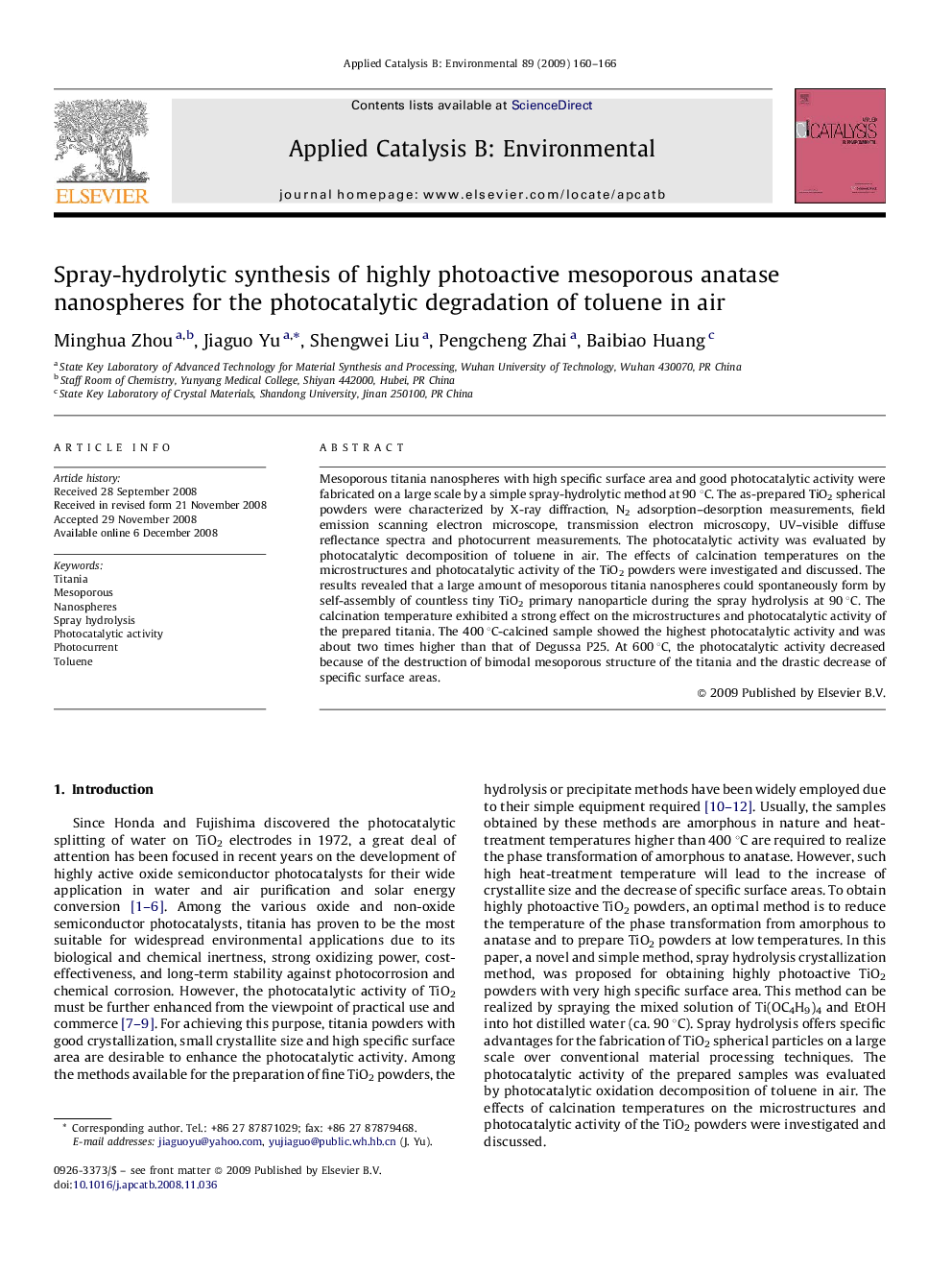| Article ID | Journal | Published Year | Pages | File Type |
|---|---|---|---|---|
| 47847 | Applied Catalysis B: Environmental | 2009 | 7 Pages |
Mesoporous titania nanospheres with high specific surface area and good photocatalytic activity were fabricated on a large scale by a simple spray-hydrolytic method at 90 °C. The as-prepared TiO2 spherical powders were characterized by X-ray diffraction, N2 adsorption–desorption measurements, field emission scanning electron microscope, transmission electron microscopy, UV–visible diffuse reflectance spectra and photocurrent measurements. The photocatalytic activity was evaluated by photocatalytic decomposition of toluene in air. The effects of calcination temperatures on the microstructures and photocatalytic activity of the TiO2 powders were investigated and discussed. The results revealed that a large amount of mesoporous titania nanospheres could spontaneously form by self-assembly of countless tiny TiO2 primary nanoparticle during the spray hydrolysis at 90 °C. The calcination temperature exhibited a strong effect on the microstructures and photocatalytic activity of the prepared titania. The 400 °C-calcined sample showed the highest photocatalytic activity and was about two times higher than that of Degussa P25. At 600 °C, the photocatalytic activity decreased because of the destruction of bimodal mesoporous structure of the titania and the drastic decrease of specific surface areas.
Graphical abstractFigure optionsDownload full-size imageDownload as PowerPoint slide
